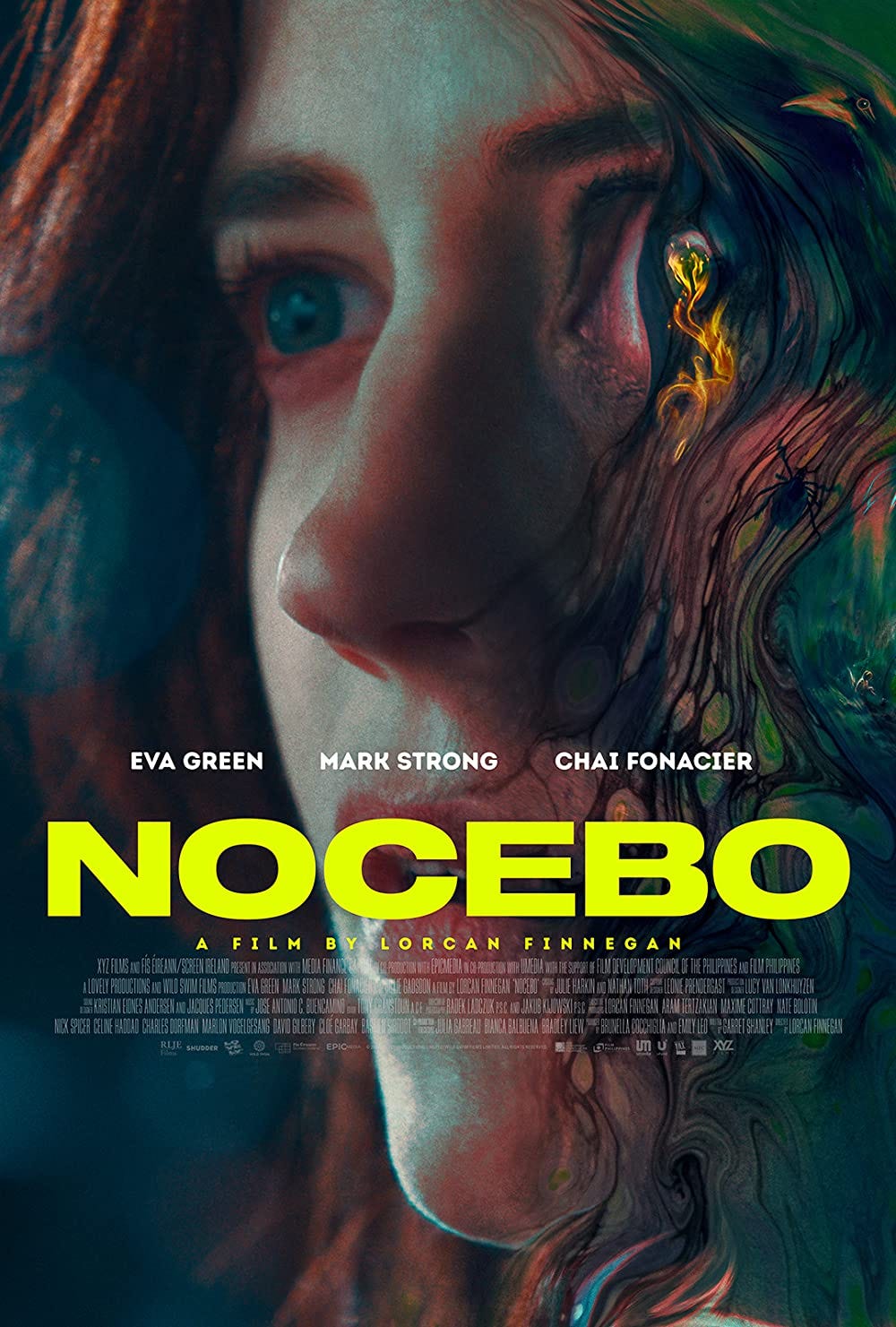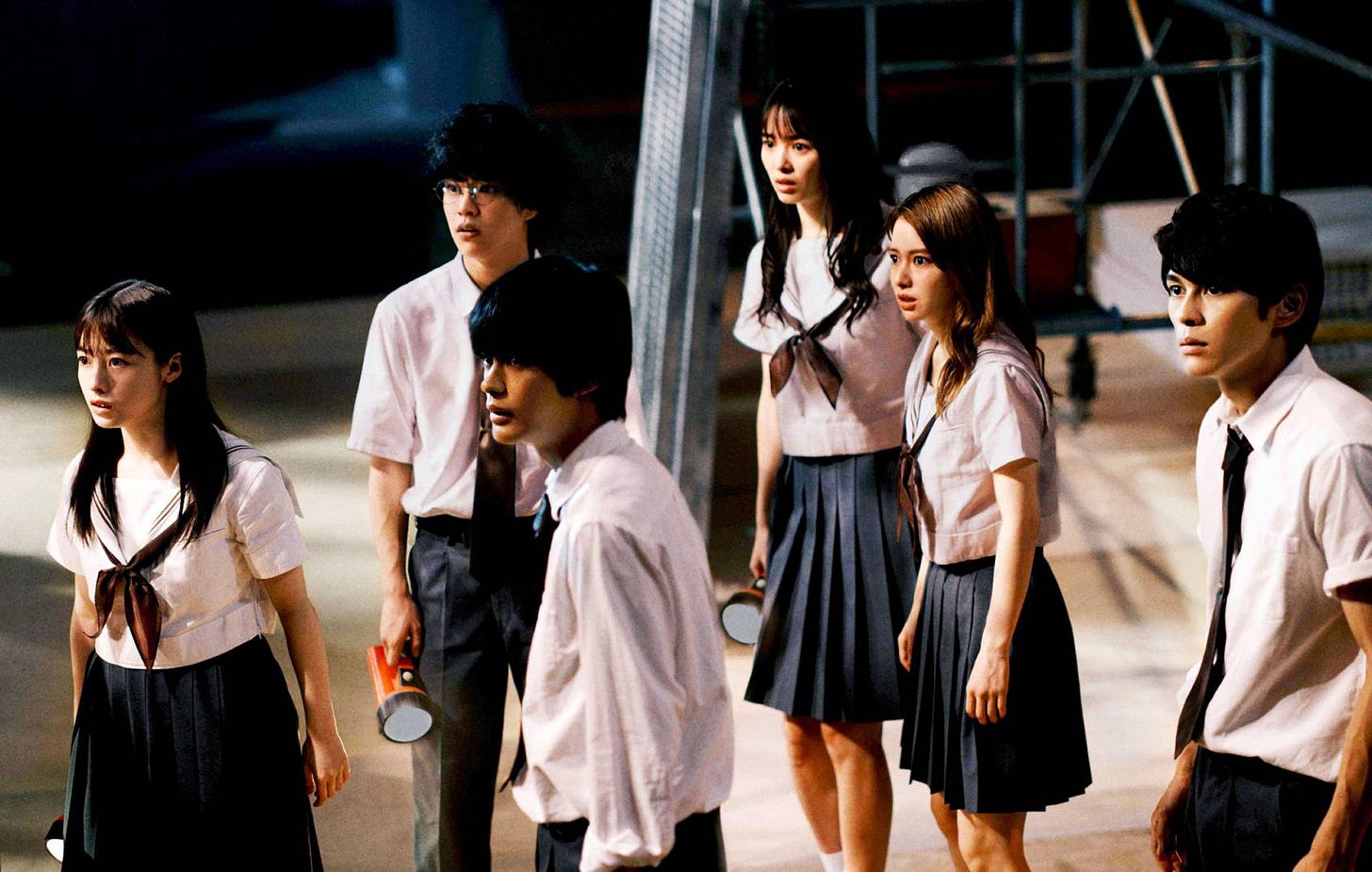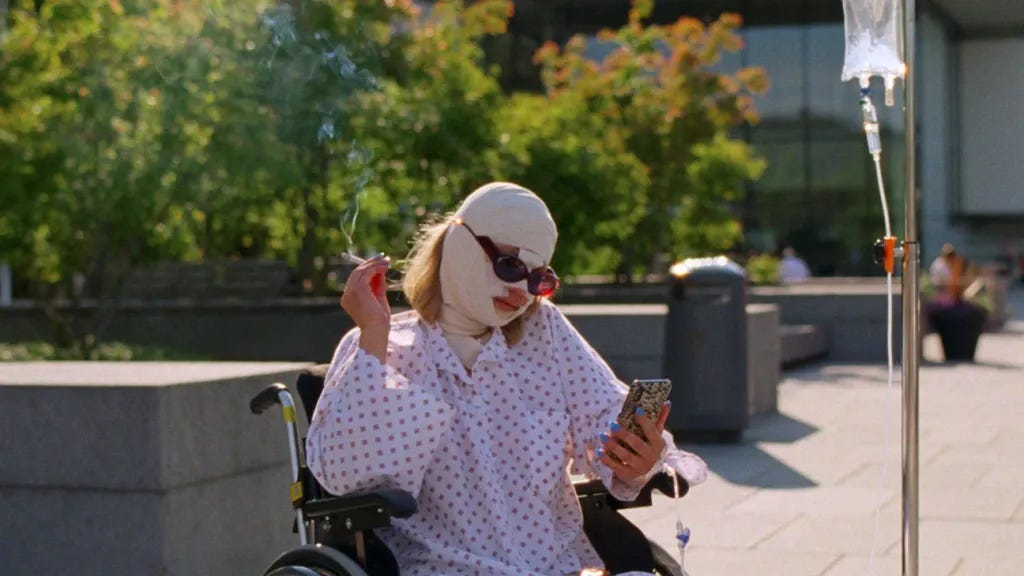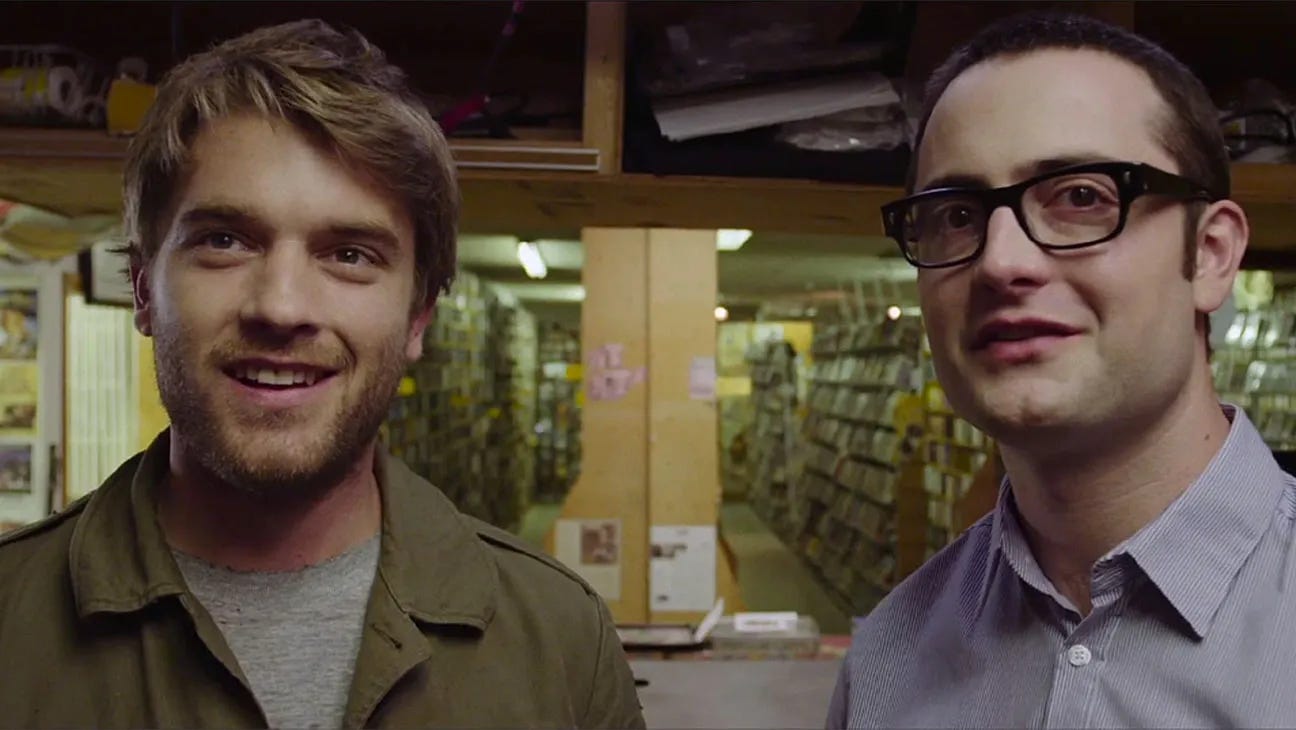'Nocebo' unmasks the real parasites
Lorcan Finnegan's cathartic fable about capitalist parasitism is vivid, red-eyed, and nightmarish. Plus, other frightful features we've caught this month.
Editor’s Note: This newsletter was originally sent and published March 2023.
SOMETHING'S AMISS ABOUT CHRISTINE. Unusually gaunt in appearance and remarkably distraught in mind, she seems unable to determine what sickness afflicts her. Somewhere, buried in the recesses of her mind, lies the answer. It gnaws inside her. A tick is drilling viciously from within, a parasite she catches from a half-burnt canine she encounters, crimson-eyed and hellish looking. She knows what's making her sick, but she doesn't want to remember.
This lends the backbone for Nocebo's horrors. From the outset, director Lorcan Finnegan makes his vision clear: To craft a vivid, red-eyed, and nightmarish fable about the foulness of Western greed and ignorance. Gone are the ambiguities of Vivarium, his previous film. Instead, the horror roots from something unmistakable and plain...good ol' revenge: To inflict the brunt of the burns the oppressed have had to bear.
It's a film as unsettling as it is cathartic, anchored, no doubt, by Chai Fonacier's magnetic performance as Diana, a true overseas Filipino mangkukulam, out to exact vengeance on Christine, a children's apparel mogul whose manufacturing practices rest a few notches below H&M Kids. Christine is played by Eva Green, who, in this film, becomes a subhuman shell of anxiety and fraught, yet strangely unaware of the backs that her red stilettos walk on.
Nocebo shares space with other thrillers criticizing class and capitalism. Where his contemporaries opt to poke fun (and, in the case of Robert Ostlünd in Triangle of Sadness, literally defecate) on the filthy rich, Finnegan takes a grim and determined position: to unmask the real parasites for who they are and take great delight in watching them burn.
Each month, I compile quick reviews of horror (and horror-adjacent) films I’ve watched. They’re a mix of new and old releases. If you want to catch them in real-time, feel free to follow my Letterboxd.
Here are this month’s reviews.
I'm not too displeased with Sissy. The horror builds up quite well and the gore racks up pretty quickly. I just feel like the influencer bit plays out too zeitgeisty and — honestly — unnecessary. It brings an unhealthy amount of noise to an otherwise nuanced take on performative kindness.
Sparse, grounded, and disquieting, Alice, Darling hits on something that will resonate with anyone who's had to endure emotional trauma, thanks mostly to Anna Kendrick's realistic portrayal of abuse, along with great performances from Kaniehtiio Horn and Wunmi Mosaku. It doesn't offer any sort of catharsis, which, for me, is fine. No significant amount of trauma can be uprooted in one single maul swing. You duck inside the tight bind of your friends, and for a long time, you will need to stay in it. And in a long time, it should be enough.
Baby Ruby is aesthetically beautiful — both true as it pertains to the film's retrofitted look and to the main actors Noémie Merlant and Kit Harington, playing anxious and ill-equipped young parents struggling to hush their incessantly wimpy newborn. Doesn't ever quite reach the level of dread it strives to and kind of just fizzes out after the first-hour mark.
Re/Member is a dire pun. It’s an even direr movie, populated strictly, it seems, with insipid and uninteresting characters. The worst one is the protagonist, a doe-eyed loner who’s seemingly written to stare helplessly at the gruesome demise of her schoolmates — the epitome of “go gurl, give us nothing.”
On board for a good chunk of Sharper, a visually impressive thriller about conscientiously minded con artists. It quickly derails into an unintelligible mess, with a denouement twistier than a pretzel knot and no edges (pardon me) sharp enough to make it at least interesting.
First encounter with Borgli's work. And honestly? Instant follower right here. Sick of Myself lives in a realm that exists between Cronenbergian body horror and sardonic dark comedies about naturally funny and awful things. The main character's hilariously self-destructive narcissism feels grounded in the fundamental truth that nags acerbic narcissists: sick of themselves.
Between the deliberate '80s kitsch, the generous gore, and the constant presence of the ever-reliable Barbara Crampton, I simply couldn't bring myself to love this. The film gets kind of uninteresting halfway through, proving that some 'what if' scenarios need proper follow-through. In Beyond the Gates' case, it needed more than just the prospect of making a Jumanji with blood geysers and head explosions.
Thank you for reading Field Notes From Hell. If you like what you read, I’d appreciate it if you shared it with a friend.
Consider subscribing and becoming a Deep Cuts member!













